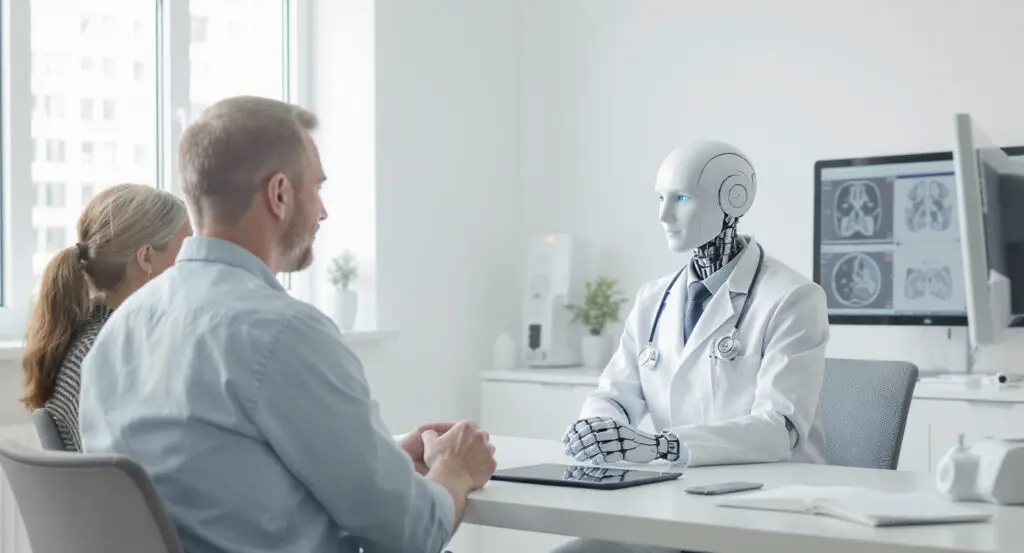The Realities of Modern Medicine
We expect our doctors to be perfect and always know what they’re talking about, but they’re just people. Doctors are getting busier and busier, working long hours under a lot of stress, and with very few resources. Everyone in the system makes a lot of mistakes and gets burned out because of all the stress.
Standards can still fall short, even in the best-funded clinics with the most dedicated staff. Doctors, like the rest of us, have minds that are stuck in the Stone Age and live in a very complicated world. Even after years of hard work, human brains just aren’t built to handle the speed, stress, and complexity of modern medicine.
The Scary Rate of Mistakes and Misdiagnoses in Medicine
One of the biggest problems with modern medicine is that doctors make mistakes and misdiagnose patients all the time. Research indicates that a substantial proportion of primary care consultations culminate in misdiagnosis, jeopardizing millions of individuals. These mistakes can cause a lot of pain and, in some cases, even death.
If you have a rare disease, the risk of being misdiagnosed is even higher because doctors don’t always know what they’re talking about. Studies show that doctors don’t always agree on diagnoses, and a large number of second opinions lead to a change in treatment. This is a very serious and very common problem that needs to be fixed right away.
The Speed of Medical Knowledge and Human Limits
Doctors can’t keep up with how quickly new medical knowledge is coming out these days. Half of what a medical student learns is already out of date by the time they graduate. A lot of new research takes an average of 17 years to reach a patient in a clinical practice, which is a long time.
There are more than 7,000 rare diseases, and every year more are found. No one person can keep up with them all. Artificial intelligence, on the other hand, can quickly and easily process a huge amount of medical data around the clock. This is a big plus that a lot of people are now paying attention to.
Recommended Article: Nvidia’s Earnings Success and Market Bubble Concerns
AI’s Superpower: Recognizing Patterns and Being Accurate
AI’s superpower is that it can find patterns and diseases that are hard for people to see in a patient. Researchers have found that some of the newest AI models are much better at clinical reasoning than human doctors, even for a lot of complicated medical problems. These tools are getting really good.
A recent study, for example, found that a powerful AI model could solve all of the common cases and a lot of the rare ones, beating the human doctors who were used as a comparison. The story of a child whose mother went to 17 doctors and then used AI to get a diagnosis shows how powerful and useful the technology can be in the real world.
The Issue of Unequal Access to Health Care
Access to healthcare is a big problem that doesn’t seem to go away. People who need it the most often don’t get it. A lot of people miss a lot of their appointments every year because their schedules are full and public transportation is bad. Also, parents and people who work part-time often have trouble getting to their checkups.
People with disabilities are four times more likely to miss out on care because of problems with transportation, costs, and long wait times. This makes the problem even worse for them. AI could change this by putting a digital doctor in a person’s pocket that is always on and available. This would help millions of people get faster, more useful advice.
The Digital Divide and the Problems That Still Need to Be Fixed
A big problem is that AI will only work in healthcare if a lot of people can use it. Internet access is getting better all over the world, but 2.5 billion people still don’t have it. Millions of people in the UK don’t have basic digital skills, which is a big problem.
A lack of confidence is another big problem, as many people think that technology is leaving them behind. This is a very real and very serious problem that needs to be fixed in a kind way. A fair evaluation of AI must be juxtaposed with the current reliance on an antiquated and flawed system.
The Future of Healthcare and AI
The future of healthcare will depend on how well AI can be used in a system that is often dangerous and unreliable. AI can help us solve many of the problems we face today, such as misdiagnosis and unequal access. This is a very important and exciting step toward a better future.
To be fair, any judgment of AI must be based on what we have right now. The problems with our current systems are a lot more dangerous than the problems that AI could have. We should welcome the chance that AI has to fix our broken systems and do a lot of good.























